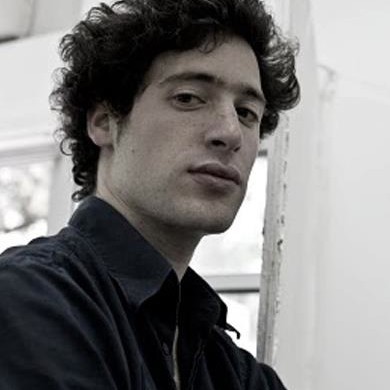Se7en Questions with Artist
Nadav Bin–Nun
Who are some of the artists or some of the works that inspired you to get started in this field? Of today’s current artists, who do you draw inspiration from?
that inspired you to get started in this field? Of today’s current artists, who do you draw inspiration from?
At the age of 20 I acted in an amateur experimental theatre group in the town of Holon, Israel. There were all kinds of nightly improvisational acting exercises and I, like everyone else in the group, had to prepare one. While searching for interesting music for the exercise, I came across the work of Meredith Monk, a multi-dimensional artist, whom I thought I have not heard of before, and the connection was instantaneous. My father later told me that when I was three years old, while driving me to kindergarten, he used to play one of her tapes and that I would not leave the car until her track Turtle Dreams finished playing. Therefore, this is the musical piece that was most influential for me from a very young age and still is today. A short video by Peter Greenaway about Monk has even made its way into one of my video pieces, Poetry That’s Meant to Kill.
Video Art by Chris Burden and Vito Acconci, which I first laid eyes on in an exhibition at Pompidou Centre in Paris, greatly influenced my early video art works, which often included viewer interaction via on-camera performances.
Eraserhead by David Lynch also was an influence on my early video art pieces, which were partly constructed from surrealistic imagery without an obvious, clear narrative.
What have thus far been some of the negatives of being an indie artist in your field?
There is a loneliness to the creation process and there is less chance of collaboration in creative arts when compared to other professions. There is no steady income and the need to earn and pay the bills results in less time available for artistic endeavors.
What have thus far been the positives of being an indie artist in your field?
Freedom of self-expression, the options of being whimsical during the creative process, testing my own limits, self-investigation and displaying Narcissism levels which are socially acceptable when labeled an “artist”.
What have been your favourite completed projects to work on up to this point? Can you tell us a little bit about them?
The project that I am most at peace with is my feature-length film The Soft German. This is due to the enormity of the investment in the project and the long production process the film required (relative to my short video art works). The film also allowed me to collaborate with artist from other fields. Directing a film with a somewhat clear narrative and combining Cinema and Video Art in my own style was a great experience.
The Cambodian Album was created within a short period, though the work on it was an outlet for a certain emotional crisis. That said, I would not describe it as “therapeutic art”, but as art inspired by events from my personal life which were integrated into the artistic process.
I am also proud of the artistic freedom I got to experience while working on my earlier short films, in a similar way to the way I work on my music today, only with more emphasis on improvisation.
What projects are you currently working on or have planned for in the near future?
These days, I am a member of the musical line-up Pearl of the East. It is a musical project with a few friends which allows me to collaborate in a way not always available to me within the creative arts.
I am also about to play a main role in an independent feature film about Shabtay Zvi, one of Israel’s infamous false prophets.
My music project, The Spiritual Album, the last in my Album Trilogy, is also nearing completion. The first was The Cambodian Album, the second The Naive Album.
In addition, I have a few ideas for a web series that I have not yet fully developed.
Where do you see yourself in a few years and what would it take for you to consider your career a success?
It seems to me that artists with no defined audience who don’t make a living from their art, do not live in fear of losing said audience or their (non-existent) artistic livelihood. Therefore, I too, don’t feel the need to please anyone and I regularly have the artistic freedom to create as I please. Success, to me, is feeling this freedom, even if a consistent audience does come along one day. It is not being dependent on anything outside my artistic needs.
I generally feel that only while I arrive at an end to periods of great boredom in my life, is when I can be truly creative. Therefore, it can be said that I wish upon myself many years of great boredom in the future.
If a change in direction, professionally or otherwise, should present itself and interest me greatly, I don’t rule out the possibility of it bringing an end to my creative art.
If you couldn’t do this anymore, what career path do you think you would have followed and why?
If I wasn’t a video artist/filmmaker/musician, I suppose I would fully pursue Acting as a profession. Acting allows me variety as well as collaboration with other artists, which is a refreshing process. It will also allow me to fully utilize a natural talent that doesn’t always gets expressed in other artistic fields.





